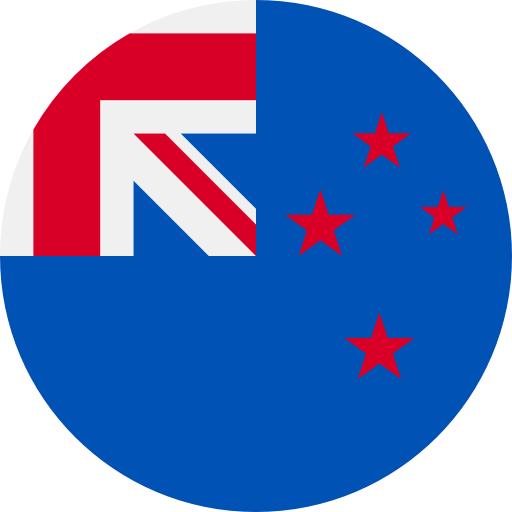About NZ

Location
New Zealand is an island country located in the southwestern Pacific Ocean. It consists of two main landmasses—the North Island and the South Island—along with numerous smaller islands, including the Chatham Islands and Stewart Island.
Capital
The capital city of New Zealand is Wellington.
Population
As of the latest estimates, New Zealand has a population of approximately 5 million people.
Area
New Zealand covers a total land area of about 268,021 square kilometers (103,483 square miles).
Official Languages
The official languages of New Zealand are English, Māori, and New Zealand Sign Language (NZSL).
Government
New Zealand is a parliamentary democracy and a constitutional monarchy with Queen Elizabeth II as the head of state. The country has a parliamentary system of government, with the Prime Minister serving as the head of government. The Parliament of New Zealand consists of the House of Representatives and the Sovereign.
Independence
New Zealand gained independence from the United Kingdom through the Statute of Westminster Adoption Act 1947. The country celebrates its national day, Waitangi Day, on February 6, commemorating the signing of the Treaty of Waitangi in 1840 between the Māori tribes and the British Crown.
Currency
The currency of New Zealand is the New Zealand Dollar (NZD).
Economy
New Zealand has a mixed economy with a strong emphasis on agriculture, tourism, and services. The country is known for its dairy and meat exports, as well as its wine industry. Tourism plays a significant role in the economy, with visitors attracted to New Zealand's stunning landscapes, outdoor activities, and cultural experiences.
Natural Features
New Zealand is renowned for its diverse and picturesque landscapes, including mountains, forests, lakes, rivers, and beaches. The country is known for iconic natural attractions such as Fiordland National Park, Milford Sound, Tongariro National Park (a UNESCO World Heritage Site), and the Bay of Islands.
Culture
New Zealand has a rich cultural heritage influenced by Māori, European, Pacific Island, and Asian traditions. The Māori culture plays a significant role in New Zealand's identity, with Māori language, arts, and customs being officially recognized and celebrated.
Sports
Rugby union is the national sport of New Zealand and holds a prominent place in the country's culture. The New Zealand national rugby team, known as the All Blacks, is one of the most successful rugby teams in the world. Other popular sports include cricket, netball, basketball, and sailing.
Education
New Zealand has a high-quality education system, with compulsory education starting at age 6 and continuing until age 16. The country has a range of public and private schools, as well as universities and polytechnics offering tertiary education.
Environmental Conservation
New Zealand is known for its commitment to environmental conservation and sustainability. The country has numerous national parks, reserves, and protected areas aimed at preserving its unique biodiversity and natural heritage.
International Relations
New Zealand maintains diplomatic relations with countries around the world and is a member of various international organizations, including the United Nations, the Commonwealth of Nations, and the Asia-Pacific Economic Cooperation (APEC).

National Items of New Zealand
Silver Fern
The silver fern is a native plant and a widely recognized symbol of New Zealand, representing the country's unique flora and national identity. It is often used in sports, military insignia, and national branding.
Kiwi Bird
The kiwi bird is an iconic flightless bird native to New Zealand. It symbolizes the unique wildlife of the country and has also become a nickname for New Zealanders.
Pounamu (Greenstone)
Pounamu, or greenstone, is a type of jade found in New Zealand. It is highly valued by the Māori people and is often used in traditional carvings and jewelry. It symbolizes strength, status, and cultural heritage.
Haka
The haka is a traditional Māori war dance that involves chanting, stomping, and body movements. It symbolizes unity, strength, and the cultural heritage of the Māori people. It is often performed at significant events, including sports matches.
Pōhutukawa Tree
The pōhutukawa tree, known as the New Zealand Christmas tree, blooms with bright red flowers in December. It symbolizes resilience and is associated with the holiday season in New Zealand.
Koru
The koru is a spiral shape based on the unfurling frond of the silver fern. It is a significant symbol in Māori art, representing new life, growth, strength, and peace.
Pavlova
Pavlova is a popular dessert in New Zealand, made of meringue with a crisp crust and soft interior, topped with whipped cream and fresh fruit. It symbolizes the country's culinary heritage and is often served during celebrations.

This anthem celebrates the beauty and spirit of New Zealand while invoking divine protection for the nation and its people. The English version is an official translation of the Māori lyrics.
The national anthem of New Zealand is called "God Defend New Zealand" in English and "Aotearoa" in Māori. Here are the lyrics in both languages along with an English translation:


